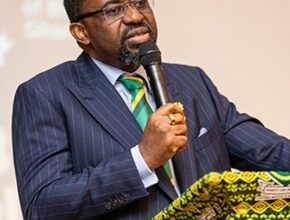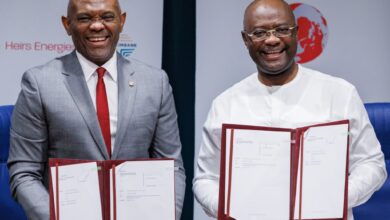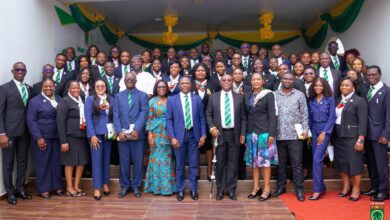Businesses Must Innovate Sales Strategies to Thrive in a Competitive Market
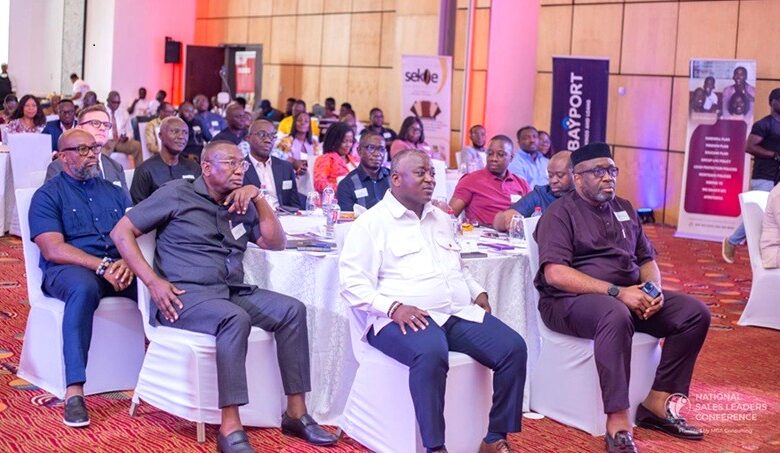
As market dynamics evolve rapidly, businesses must rethink their sales strategies, leverage cutting-edge techniques, and build resilient sales networks to drive growth and economic transformation.
This is the call to action from Michael Abbiw, Convenor of the 2025 National Sales and Leadership Conference (NSLC), as he urges businesses to adapt to the changing landscape.
Speaking ahead of the highly anticipated NSLC 2025, scheduled for August 20-22 at the Accra International Conference Centre, Abbiw stressed that traditional sales methods are becoming obsolete. He called for a shift towards modern, customer-centric sales approaches to stay ahead of the competition.
“The business environment is becoming more volatile, and relying on outdated sales techniques will not suffice in tackling today’s challenges,” Abbiw stated. “Sales leaders must develop fresh approaches to engage customers, especially as Gen Z becomes a dominant force in the workforce.”
The three-day conference, now expanded from two days, will feature over 52 industry experts from various sectors, including finance, banking, health, and trade.
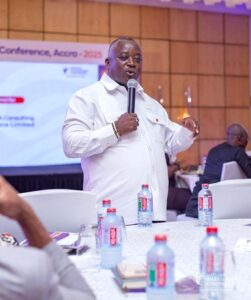
Abbiw noted that this year’s event is designed to provide businesses with practical tools to enhance revenue generation and market influence.
“This year, we’re taking a deep dive into how sales drive business growth and economic transformation. Any organization focused on revenue generation should be part of this event,” he urged.
New Features at NSLC 2025
One of the significant changes for NSLC 2025 is the introduction of exclusive, closed-door sessions, each accommodating only 200 participants. Abbiw encouraged businesses to register early, noting that last year’s event exceeded expectations, drawing over 1,500 attendees despite an initial target of 1,000.
Additionally, the conference will commence with a high-profile gathering of 100 CEOs, reinforcing the importance of sales leadership at the executive level.
“Come, let’s learn together, let’s grow together, and let’s develop the strategies that will shape our future,” Abbiw urged.
Sales as the Lifeblood of Business
Dr. Ernest Kojo Sarpong, CEO of the Special Group of Companies, underscored the significance of NSLC 2025, describing it as a catalyst for economic growth and leadership transformation.
“As a country, we know our success depends on innovation and creativity. But none of that matters without sales. Sales are the lifeblood of any business,” Dr. Sarpong emphasized. “No matter how innovative your product is, if you cannot sell it, you cannot succeed.”
He pointed out that businesses thrive on two key pillars: product quality and a strong sales network. However, he noted that many organizations underestimate the role of relationships in driving sales success.
“Sales aren’t just about what you sell; they’re about who you know and how you nurture those connections. The future of sales isn’t just digital; it’s relational,” he added.
Empowering Sales Leaders for the Future
Dr. Sarpong highlighted that successful businesses embed sales strategies at every level of their operations.
“When you invest in your salespeople, you invest in the future of your organization. Leaders must equip, empower, and reward their teams for driving the vision forward,” he noted.
He also emphasized that sales success is rooted in problem-solving and value creation rather than merely pushing products.
“When you care for your people, they will care for your business. That’s the essence of leadership, and it’s what NSLC represents: a space where business leaders, sales professionals, and entrepreneurs come together to learn, grow, and lead.”
A Call to Action for Businesses
Dr. Sarpong urged businesses, corporate organizations, and entrepreneurs to invest in NSLC 2025 as a strategic move to transform Ghana’s sales culture.
“Together, we can unlock sales’ full potential as a driver of economic development. NSLC 2025 isn’t just a conference; it’s a launchpad for the next generation of leaders who will shape the future of business in Ghana.”
He concluded by calling on stakeholders to support the event and ensure it becomes a defining moment for Ghana’s business community.
“Let’s take this event beyond Accra, beyond Ghana, and into the global business community. The future belongs to those who dare to innovate, connect, and lead.”


